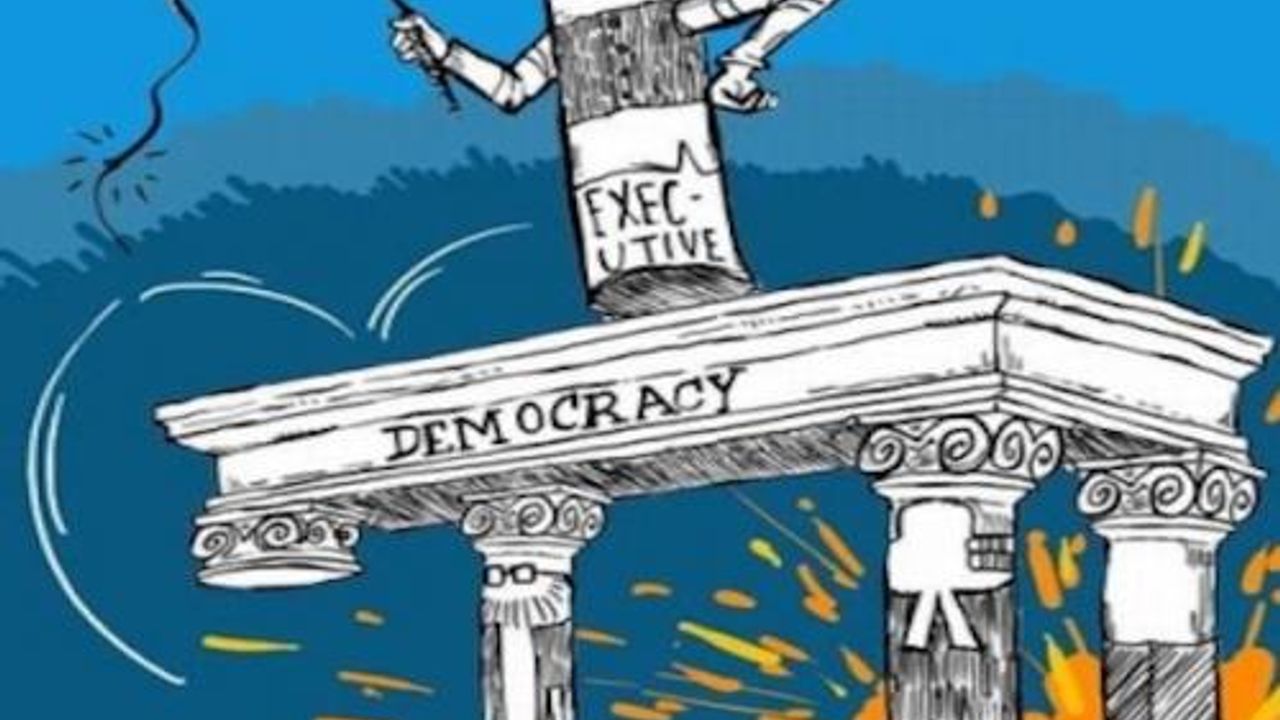The history of democracy has had its ups and downs throughout its development. Since the ancient Greece, many different experiences of direct and representative democracy with different qualities and sizes, controversial qualities and quantities have occurred.
This article explains the history of democracy, the development of the political and social sides of parliamentary democracy with the difficulties of settlement and institutionalisation of this tradition. The separation, unification and concentration of powers are scrutinised in its significant political model: parliamentary democracy. In addition, while the article explains the reasons behind the transformation of pluralism to majoritarianism and its dilemmas, it also analyses the constitution of a country, electoral rules and the law of political parties and problems from this perspective.
***
The history of democracy has had its ups and downs throughout its development. Since the ancient Greece, many different experiences of direct and representative democracy with different qualities and sizes, controversial qualities and quantities have occurred. In the historical process where democracy has created ideal models or it has become a tyranny, there has been a transition to a representative democracy with its citizens to participate in the administration through their representatives, from a direct democracy in which citizens partakes without any representative. These experiences have evolved into pluralistic democracy and different types of democracy.
There are several turning points to the establishment of a political power, its usage, sharing and fall in the history of democracy. Nevertheless, the most impressive one which is the limitation, control and the restriction of the absolute power with a constitutional social contract happened in England. The history of democracy is full with examples where the power is concentrated in the hands of one and the power is deteriorating.
Looking at the way of the formation of political power, the experience of representative democracy has proved itself with all those models that it created. These models are known with their loyalty to ‘representation and legitimisation.’ While this model develops reflexes to avoid the assembly of absolute powers, it also defends itself against financial oligarchy. For the maintenance of the democracy and the presence of the parliament, a strong civil society and individuals has to reinforce parliamentary representative democracy.
The most important milestone of the limitation of absolute power and the incorporation of the relations between government-society-individual into a social contract is the Magna Carta Libertatum in England, 1215, ‘The Big Declaration of Independence.’ Magna Carta limited the endless power of the absolute monarchy and has become the fundamental basis of today’s law system, with respect to content of its article 39.[1] According to this law, “No free man shall be seized or imprisoned, or stripped of his rights or possessions, or outlawed or exiled, or deprived of his standing in any way, nor will we proceed with force against him, or send others to do so, except by the lawful judgment of his equals or by the law of the land.”
This statement still refers a significant quest in countries that seek to become a state of law. This document which is an important point of resistance against the power of absolutism has helped to the constitutional culture that has assisted the establishment of parliaments.
When we look at our own history of democracy, “Sened-i İttifak” is a document that carries a similar meaning as the Magna Carta. This document is an important written document and agreement that limits the power of the absolute sultanate. The Sened-i İttifak, is a document that is signed by the Rumelian and Anatolian notables that were gathered by the Ottoman Grand Vizier Alemdar Mustafa Pasha on 29th of September, 1808.[2] Constitution legists acknowledge this document as the first constitutional document in history of Turkey and consider it as the beginning of the constitutional movements in Turkey.
While there have been several examples of written social contracts, the history of democracy and the constitutional movement embrace these two documents as indispensable agreements against absolute monarchy. Throughout Turkey’s history, there has been a shift to a parliamentarian era from the Ottoman constitutional monarchy experience with the republic. After the republican era where the parliamentary government and the parliament were dominant, a multi-party system was installed with the push of the global conjuncture after the second world war. The process of parliamentarian democracy that has been interrupted by coups had its ebbs and flows until today.
The most important reason why Turkish parliamentary democracy could not completely be institutionalised and intensified after memorandum and coups d’état, is because constitutions that were written under the impact of coups d’état were not radically amended. The fact that a brief, concise, simple and consistent constitution was not established and it prevented parliamentary legitimacy and the democratic legal system from deepening.
Cihan Aydın
this publication as follows:
Aydın, C. (December, 2015), “Parliamentary Democracy on the Verge of Authoritarianism” Vol. IV, Issue 12, pp.51-56, Centre for Policy and Research on Turkey (Research Turkey), London, Research Turkey (http://researchturkey.org/?p=10278)
Endnotes
[1] Magna Carta Libertatum, The Great Freedom Charter, is the main document of constitutional democracy signed by the King of the United Kingdom, John; Cardinal Stephen Langton and barons in 1215 in England. In this document, the King restricted his authority for the first time and allowed the public some rights as well as freedom.
2 Sened-i İttifak: An agreement signed between the Grand Vizier Alemdar Mustafa Pasha and the Rumelian and Anatolian notables on the 29th of September, 1808. Constitutional legal experts consider this document as the first document of a constitution in Turkey’s history.
[3] TANDEM: It is used for a bike for two and paragliding. It means that something that should be done by one person is carried out by two persons. In this study, leadership tandem refers to the alternate popular authoritarianism built by Putin and Medvedev in Russia. It is a tandem of presidentialism and prime ministry.










